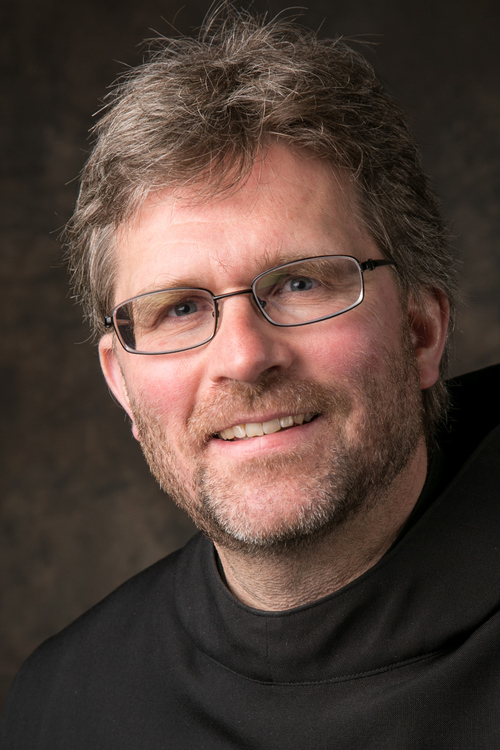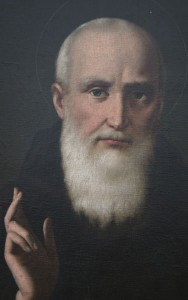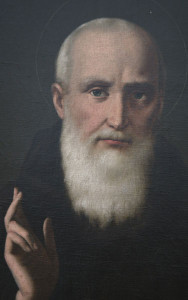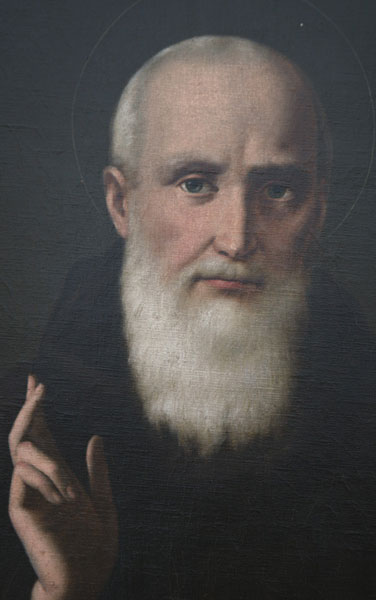Podcast: Play in new window | Download (Duration: 40:44 — 28.1MB) | Embed
Subscribe: Apple Podcasts | Spotify | Amazon Music | Android | Pandora | iHeartRadio | JioSaavn | Podchaser | Gaana | Podcast Index | Email | TuneIn | Deezer | Anghami | RSS | More

The Nature of Our Need – The Holy Rule of St. Benedict with Fr. Mauritius Wilde OSB
Fr. Mauritius Wilde and Kris McGregor explores the virtue of “soberness” as a spiritual practice rooted in the Rule of St. Benedict. Fr. Wilde highlights soberness as a state of inner freedom, not merely abstaining from excess but cultivating simplicity, clarity, and presence to God and reality. Using the story of Herod’s banquet (Mark 6:14–29), he illustrates the destructive effects of overindulgence and emotional intoxication. Modern parallels, such as the constant consumption of media or overindulgence in food and entertainment, show how losing soberness distorts judgment and leads to spiritual emptiness.
Fr. Wilde emphasizes that soberness is not deprivation but liberation. It enables one to find joy in simplicity, like savoring the taste of water or the beauty of silence. This virtue invites us to consider what we truly need and align our lives with God’s presence. Soberness fosters awareness, detachment from material distractions, and a deeper appreciation for the divine. It’s a path to spiritual maturity, freeing us to “taste” God’s goodness and live with clarity and balance in a noisy, indulgent world.
Discerning Hearts Reflection Questions
- Understanding Soberness as a Virtue: How can cultivating soberness in your daily life create space for greater awareness of God’s presence?
- Reflection on Overindulgence: In what ways might overindulgence in food, entertainment, or media cloud your spiritual clarity and decision-making?
- Lessons from Herod’s Banquet: How does the story of Herod’s irrational actions challenge you to remain grounded and detached from societal pressures?
- Savoring Simplicity: What experiences in your life have helped you discover the beauty and joy of simplicity?
- Experiencing the Divine Taste: How can you practice spiritual disciplines, such as fasting or silence, to better “taste” the presence of God?
- Balancing Positive Emotions: How can you maintain spiritual balance and clarity when experiencing enthusiasm or joy?
- Soberness in Modern Life: How might you limit distractions, such as constant news or social media, to foster a more sober and prayerful mindset?
- Aligning Needs with God’s Will: How do you discern what you truly need versus what distracts you from spiritual freedom and maturity?
From the Gospel of St. Mark 6:14-29
The Death of John the Baptist
14 King Herod heard of it; for Jesus’[b] name had become known. Some[c] said, “John the baptizer has been raised from the dead; that is why these powers are at work in him.” 15 But others said, “It is Eli′jah.” And others said, “It is a prophet, like one of the prophets of old.” 16 But when Herod heard of it he said, “John, whom I beheaded, has been raised.” 17 For Herod had sent and seized John, and bound him in prison for the sake of Hero′di-as, his brother Philip’s wife; because he had married her. 18 For John said to Herod, “It is not lawful for you to have your brother’s wife.” 19 And Hero′di-as had a grudge against him, and wanted to kill him. But she could not, 20 for Herod feared John, knowing that he was a righteous and holy man, and kept him safe. When he heard him, he was much perplexed; and yet he heard him gladly. 21 But an opportunity came when Herod on his birthday gave a banquet for his courtiers and officers and the leading men of Galilee. 22 For when Hero′di-as’ daughter came in and danced, she pleased Herod and his guests; and the king said to the girl, “Ask me for whatever you wish, and I will grant it.” 23 And he vowed to her, “Whatever you ask me, I will give you, even half of my kingdom.” 24 And she went out, and said to her mother, “What shall I ask?” And she said, “The head of John the baptizer.” 25 And she came in immediately with haste to the king, and asked, saying, “I want you to give me at once the head of John the Baptist on a platter.” 26 And the king was exceedingly sorry; but because of his oaths and his guests he did not want to break his word to her. 27 And immediately the king sent a soldier of the guard and gave orders to bring his head. He went and beheaded him in the prison, 28 and brought his head on a platter, and gave it to the girl; and the girl gave it to her mother. 29 When his disciples heard of it, they came and took his body, and laid it in a tomb.
Father Mauritius Wilde, OSB, Ph.D., did his philosophical, theological and doctoral studies in Europe. He is the author of several books and directs retreats regularly. He serves as Prior at Sant’Anselmo in Rome. For more information about the ministry of the Missionary Benedictines of Christ the King Priory in Schuyler, NE




 THERE was a man of venerable life, Benedict by name and grace, who from the time of his very childhood carried the heart of an old man. His demeanour indeed surpassing his age, he gave himself no disport or pleasure, but living here upon earth he despised the world with all the glory thereof, at such time as he might have most freely enjoyed it. He was born in the province of Nursia of honourable parentage and sent to Rome to study the liberal sciences. But when he saw there many through the uneven paths of vice run headlong to their own ruin, he drew back his foot, but new-set in the world, lest, in the search of human knowledge, he might also fall into the same dangerous precipice. Contemning therefore learning and studies and abandoning his father’s house and goods, he desired only to please God in a virtuous life. Therefore he departed skilfully ignorant and wisely unlearned.
THERE was a man of venerable life, Benedict by name and grace, who from the time of his very childhood carried the heart of an old man. His demeanour indeed surpassing his age, he gave himself no disport or pleasure, but living here upon earth he despised the world with all the glory thereof, at such time as he might have most freely enjoyed it. He was born in the province of Nursia of honourable parentage and sent to Rome to study the liberal sciences. But when he saw there many through the uneven paths of vice run headlong to their own ruin, he drew back his foot, but new-set in the world, lest, in the search of human knowledge, he might also fall into the same dangerous precipice. Contemning therefore learning and studies and abandoning his father’s house and goods, he desired only to please God in a virtuous life. Therefore he departed skilfully ignorant and wisely unlearned.
 From the Holy Rule of St. Benedict:
From the Holy Rule of St. Benedict: